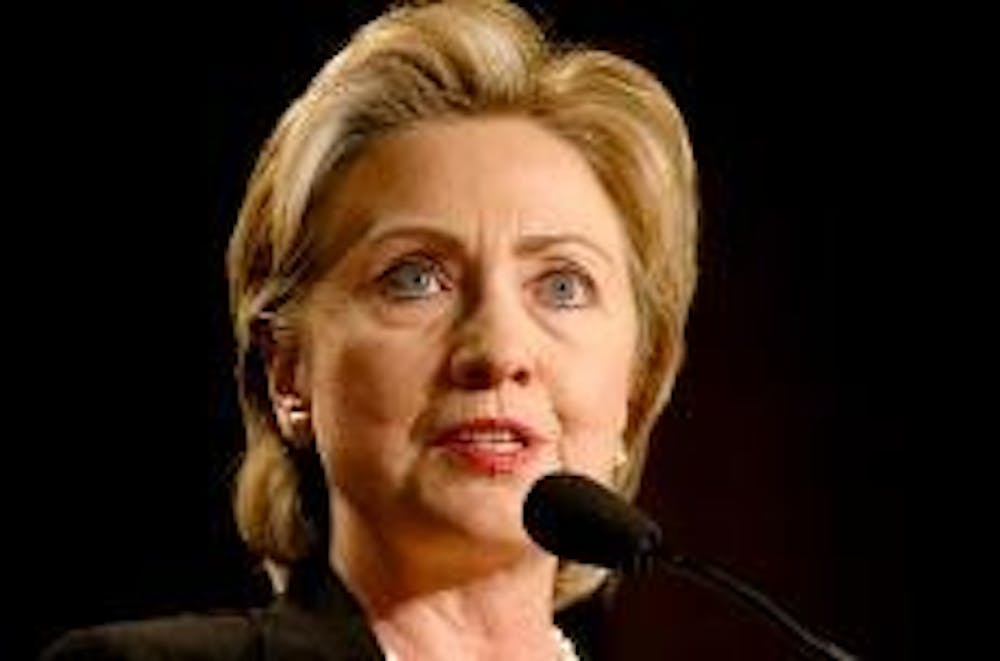As the 2008 presidential race quickens its pace, Democratic candidates may find more support from college-age voters if they continue focusing on an issue Republicans have so far neglected: how to ease the burden of rising college costs.
At AU, some students and faculty said they were worried that most candidates would not make college financial aid a top priority.
David Moak, a senior in the College of Arts and Sciences, expressed frustration at soaring college costs.
"I think it's pathetic that the average American has to pay so much even to attend public colleges," Moak said. "It drastically limits the number of students who can attend [college]."
Frustrated students like Moak may wonder why some candidates ignore the problem.
Several factors influence a candidate's prioritization of issues: party affiliation, whether the issue comes up in a debate and who the core demographic of supporters is for that candidate, said James Thurber, a distinguished professor of government and director of the Center for Congressional and Presidential Studies in the School of Public Affairs.
The college-age demographic had the largest increase in voter turnout of any age group in the 2004 elections, according to Thurber. Therefore, candidates should address more issues related to young people, he said.
"I think it's a good strategy for both parties," Thurber said.
Sam Brown, a freshman in SPA, said a higher voter turnout among college-age voters would bring a greater response from candidates on financial aid issues.
"Until young people start voting, it won't garner any attention," Brown said.
Some students doubt candidates would make the issue a top priority.
"I don't think it will be a deciding factor in the race," said Anna Friedlander, a senior in SPA and the CAS.
Many candidates neglect rising college costs because they deem other issues more important, said Alex Heller, a senior in the Kogod School of Business.
New Mexico governor and Democratic presidential candidate Bill Richardson expressed a similar view several weeks ago when he announced a plan to cut student loans in exchange for community service, The Eagle previously reported.
"Nobody talks about education," Richardson said, according to The Washington Post.
Richardson's view does not hold true for most Democrats, however.
Former North Carolina Sen. John Edwards' College for Everyone program offers to pay the first year of tuition, fees and books for underprivileged college freshmen if they agree to work part-time, according to his campaign Web site.
Sen. Barack Obama, D-Ill., plans to eliminate subsidies to private student lenders and invest the savings in further student aid, according to his campaign Web site. He also wants to push for greater transparency in the student financial aid process.
Obama joins Sens. Joseph Biden, D-Del., and Christopher Dodd, D-Conn., in promising to raise the Pell Grant over the next five years to amounts ranging from $4,310 to $6,300, The Chronicle for Higher Education reported.
Expanding tax credits for college costs is another idea flaunted by Democratic candidates, according to The Chronicle.
Biden wants to consolidate two current tax incentives - the Hope Scholarship Credit and the tuition and fees deduction - and replace them with a single $3,000 tax credit, according to his campaign Web site. The Hope Scholarship Credit covers about 28 percent of tuition and fees at a public four-year college while the tuition and fees deduction covers about 20 percent, according to the Web site. The $3,000 College ACCESS tax credit would cover more than half of these costs at a public four-year college. Simplifying these incentives makes it easier for families to understand and utilize them, according to Biden's campaign Web site.
New York Sen. Hilary Clinton is the only major Democratic contender who has said little on college affordability. Most Republicans have been quiet about the issue.
Arizona Sen. John McCain's campaign Web site lists Iraq, government spending and immigration reform as top issues. No mention is made of education or college costs.
School choice is listed on Rudy Giuliani's campaign Web site as one of his "12 Commitments," but college costs are not addressed.
Another issue is whether presidential candidates who support financial aid initiatives will be able to follow through with their promises. Brown said he was confident a Democratic president would pull through but said the Congressional majority would influence the outcome of the issue as well.
"It all depends on the makeup of the House and Senate," Brown said.





